
Exposé Online
What's old
Exposé print issues (1993-2011)
- 1 (October 1993)
- 2 (February 1994)
- 3 (May 1994)
- 4 (August 1994)
- 5 (October 1994)
- 6 (March 1995)
- 7 (July 1995)
- 8 (November 1995)
- 9 (March 1996)
- 10 (August 1996)
- 11 (February 1997)
- 12 (May 1997)
- 13 (October 1997)
- 14 (February 1998)
- 15 (July 1998)
- 16 (January 1999)
- 17 (April 1999)
- 18 (November 1999)
- 19 (May 2000)
- 20 (October 2000)
- 21 (March 2001)
- 22 (July 2001)
- 23 (December 2001)
- 24 (April 2002)
- 25 (September 2002)
- 26 (February 2003)
- 27 (August 2003)
- 28 (December 2003)
- 29 (April 2004)
- 30 (September 2004)
- 31 (March 2005)
- 32 (September 2005)
- 33 (May 2006)
- 34 (March 2007)
- 35 (January 2008)
- 36 (October 2008)
- 37 (July 2009)
- 38 (July 2010)
- 39 (Summer 2011)
Features
From Earthstar to Land —
The Dennis Rea Interview 2001
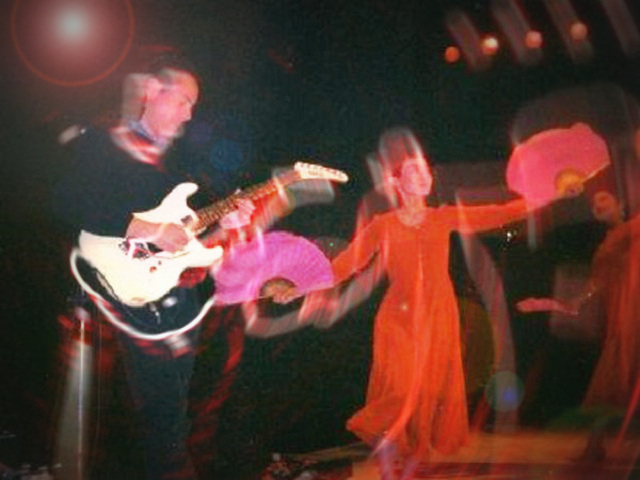
Dennis Rea is a used to being at the vanguard of music; from his unlikely progressive rock roots to his current sound collage excursions (both in the US and abroad) he’s been both a catalyst and creator of a unique fretboard approach. Dennis is a member of two First World Recording artists, Stackpole and Land (with ambient pioneer Jeff Greinke) and also gigs with local Northwest singer/songwriters. In his “spare time” the guitarist runs the experimental music newsletter, The Tentacle which chronicles the local Seattle scene. Exposé caught up with Dennis after completing the third Land disc, Road Movies.
by Jeff Melton, Published 2001-12-01
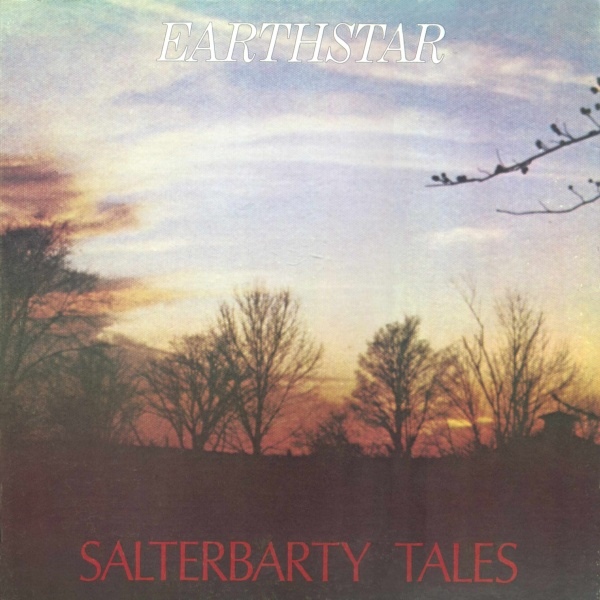 Please tell us about your roots with Earthstar: How did you get involved in this project? Did you do any live performances?
Please tell us about your roots with Earthstar: How did you get involved in this project? Did you do any live performances?
Earthstar was the brainchild of keyboardist Craig Wuest, who like myself grew up in the small city of Utica, New York, in the 1960s and 70s. Craig was the first person in Utica to own a synthesizer and was heavily influenced by the space music being made in Germany at the time by the likes of Klaus Schulze, Popol Vuh, and Harmonia. Earthstar was essentially Craig's solo project, with additional guest musicians thrown into the mix. In the mid-70s I was one-third of Utica's lone progressive rock group, Zuir; being the only two adventurous music acts in town, collaboration between Craig and the members of Zuir was inevitable. My recording debut came when I added some guitar parts to the first (now impossible to find) Earthstar LP, Salterbarty Tales, released by Nashville's Moontower Records in 1978. The group performed live only a handful of times, mostly at inappropriate venues like roadhouse bars and college beer halls, with predictable results.
In the meantime Craig, feeling rather isolated in the country-rock backwater of Utica, had struck up a correspondence with his hero Klaus Schulze, who encouraged him to try his luck in Germany. So Craig sold his grand piano and showed up on Schulze's doorstep in Hambuhren in 1979, where he was serendipitously offered a record deal with Schulze's brand-new Innovative Communications label. Although the IC recording failed to materialize for various sordid reasons, Craig stayed on in Germany for several years and released three more Earthstar records on Sky, one of the more prominent labels of Krautrock's golden era. He invited me and other Utica musicians to Germany to contribute to these records, and I spent six months there working on Earthstar sessions in Schulze's studio, my first real trial by fire.
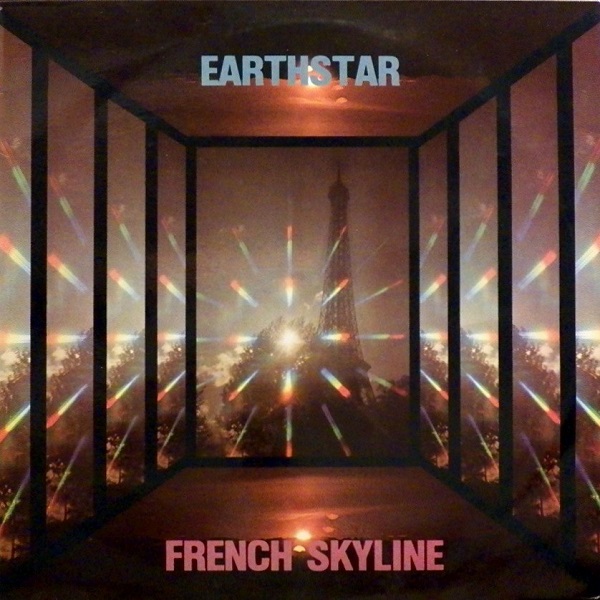 In retrospect I've come to appreciate that Earthstar was perhaps the only American group to participate, however peripherally, in Germany's 'Kosmische Musik' scene during its heyday. Thinking that our records were laughably obscure, I was astonished to discover that at least one of the Earthstar titles, French Skyline, was reissued two years ago on CD and hailed as a "synthesizer music classic." But I can't really agree with that assessment — although the records do have their moments, there are sections that are excruciating for me to listen to at this distance. And Earthstar was truly one of the most awful band names ever.
In retrospect I've come to appreciate that Earthstar was perhaps the only American group to participate, however peripherally, in Germany's 'Kosmische Musik' scene during its heyday. Thinking that our records were laughably obscure, I was astonished to discover that at least one of the Earthstar titles, French Skyline, was reissued two years ago on CD and hailed as a "synthesizer music classic." But I can't really agree with that assessment — although the records do have their moments, there are sections that are excruciating for me to listen to at this distance. And Earthstar was truly one of the most awful band names ever.
Who are your early influences? Can you give examples of songs or albums that made a major impression on you?
Believe it or not, the group that inspired me to become a musician was the Monkees. To this day I savor the irony of being influenced by guys who, at least initially, were not even playing their own instruments on their albums! But the two experiences that were probably most important to my later development were hearing the György Ligeti compositions on the 2001 soundtrack at age 11, and the first King Crimson album on the radio at age 15. The former opened my ears to expanded conceptions of form and tonality and to the world of 'extended' instrumental technique; Ligeti remains my favorite composer to this day. The latter showed me that rock music could be so much more than the usual foursquare pounding with juvenile lyrics. Another crucial development came when my uncle, a conservative classical music snob, dumped an LP titled Electronic Music on my family along with other record-club rejects. The album included important early electronic works by Cage, Luciano Berio, and Ilhan Mimaroglu. I was hugely stimulated by these curious sounds, which led me to question traditional distinctions between 'music' and 'noise' at an early age.
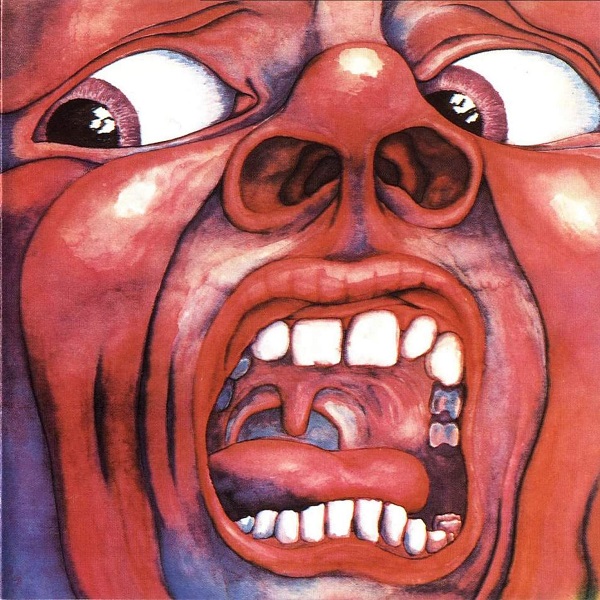 By the time I reached my mid-teens I was totally immersed in progressive rock, at first the usual suspects like Crimson and Gentle Giant and later more eccentric outfits such as Matching Mole, Van der Graaf Generator, Henry Cow, Centipede, and the like. Both Crimson and Soft Machine led me to an abiding interest in modern jazz, which was further reinforced when my older brother introduced me to Miles Davis’ Bitches Brew and the music of free-jazz musicians such as Coltrane, Dolphy, and Ayler. The Mahavishnu Orchestra's Birds of Fire and Weather Report's I Sing the Body Electric were also major influences, as were records by Oregon, ECM discs by John Abercrombie and Barre Phillips, and German synthesizer music.
By the time I reached my mid-teens I was totally immersed in progressive rock, at first the usual suspects like Crimson and Gentle Giant and later more eccentric outfits such as Matching Mole, Van der Graaf Generator, Henry Cow, Centipede, and the like. Both Crimson and Soft Machine led me to an abiding interest in modern jazz, which was further reinforced when my older brother introduced me to Miles Davis’ Bitches Brew and the music of free-jazz musicians such as Coltrane, Dolphy, and Ayler. The Mahavishnu Orchestra's Birds of Fire and Weather Report's I Sing the Body Electric were also major influences, as were records by Oregon, ECM discs by John Abercrombie and Barre Phillips, and German synthesizer music.
What was your first guitar and gig as a professional musician?
My first guitar was a Montgomery Ward 'Airline' acoustic model. My parents had rejected earlier entreaties that they buy me a guitar, but softened one evening at the sight of me mournfully strumming a cigar box wrapped with rubber bands. The guitar was in my room when I came home from school the next day. I was nine years old when I first took up the instrument, but it was another 2-3 years before I got serious about it. I took lessons for the first few years before stubbornly going my own way, a decision that has led to both the strengths and flaws of my personal playing style. I've been playing for more than 30 years at this point.
My debut gig was with my first steady group, Atmosphere, at an event billed as a "teen/tween dance" at the Jewish Community Center in Utica in 1972. We played a handful of my originals plus covers of Pink Floyd, Curved Air, and PFM tunes — rather esoteric fare for our young audience. The group later evolved into the prog-rock trio Zuir with bassist Norm Peach and drummer Dan Zongrone. Zuir carried on for several years and even relocated to Seattle briefly in 1975-76, thus making us perhaps the first out-of-state rock band to seek its fortune in Seattle — only 20 years too early.
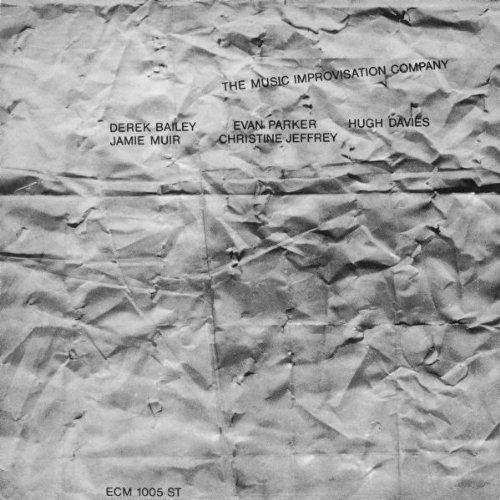
How did you make the leap into improvised music?
My earliest exposure to free improvisation came through recordings by Keith Tippett and the Music Improvisation Company (Derek Bailey, Evan Parker, Hugh Davies, Jamie Muir, and Christine Jeffries) in the early 70s. I didn't quite get the music at first but persisted in trying to make sense of it, trusting that these were heavy musicians because some of my prog-rock heroes regularly sang their praises. After continued exposure the music eventually 'clicked' for me; I became fascinated with free improv's limitless sonic palette and vocabulary of unorthodox techniques, and also with its extra-musical dimensions — its non-hierarchical nature emphasizing mutual responsibility, and its implicit rejection of the rigid authoritarianism of Western musical orthodoxy.
By the 80s I was aware of the work of most of the major improvisers, from the free jazz explorations of the AACM in Chicago and the "October Revolution" nexus in New York to the non-jazz-based improvised music emanating from Europe. When I returned to Seattle in the mid 80s after a brief stint in NYC, I came into contact with passionate free improvisers such as Wally Shoup, Paul Hoskin, and Jeffrey Morgan, and got involved in various improvising groups including the New Art Orchestra and Catabatics. My first completely improvised public performance was a 1987 gig with the trio Particle Theory, with saxophonist Wally Shoup and guitarist Eric Amrine. I've split my efforts between freely improvised and structured music ever since.
In 1988 I helped to organize the Third Seattle Improvised Music Festival, extending a tradition of less formal events that had been initiated by reed player Paul Hoskin in the mid-80s. The festival has been going strong ever since, and I've been one of the primary organizers since 1994. It's the longest-running festival in North America devoted entirely to free improvisation, and has increasingly attracted top-flight improvisers from around the globe. This year's festival was a huge success musically, with amazing performances by Barre Phillips, Nels Cline, Jin Hi Kim, John Butcher, Bob Ostertag, Frode Gjerstad, and others. I've also acted as a co-organizer of the intermittent Other Sounds new music concert series in Seattle, a showcase for local, national, and international players working in the areas of free improvisation, modern jazz, and experimental and electro-acoustic music.
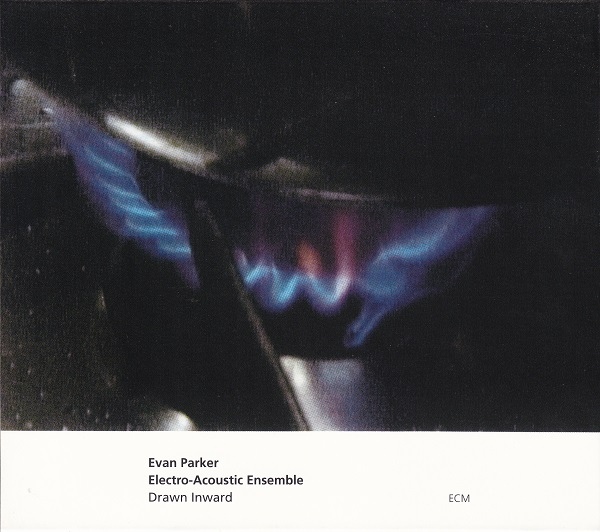 Where do you see improvisational performance going in the future?
Where do you see improvisational performance going in the future?
The most notable development in improvised music these days is the increased presence of electronic instruments, both as sound generators in their own right and as a means for live processing of acoustic instruments. Some of the most exciting improvised music these days involves electronics, for example, UK saxophone virtuoso John Butcher's collaborations with electronicist Phil Durrant, or Evan Parker's Electro-Acoustic Ensemble. Now that sophisticated, highly portable, and relatively inexpensive sound software is available for laptop computers, I envision much more of this type of electro-acoustic improvisation in the coming years.
How did you get interested in the music scene in Taiwan and China?
Although I became interested in various world musics years ago, I had no special fascination with Chinese music initially. But in 1988 my then fiancée, Anne Joiner, accepted a teaching position in the city of Chengdu in Sichuan Province and managed to arrange a job for me as well. I moved to China in early 1989 — just in time for the Tiananmen explosion, but that's another story altogether. At the time, I viewed the whole episode as an interruption of my music career, and had little expectation of performing publicly in China.
Soon after arriving in Chengdu, I was approached by members of the university guitar club and asked to perform. Things snowballed from there and I soon found myself in one preposterous situation after another, performing for tens of thousands of people in sports arenas, universities, and other venues, and for millions more on radio and television. I worked up a solo instrumental set that included some mildly experimental pieces, sonic trickery, and electric guitar adaptations of Chinese traditional music. Invariably, it was the first time these previously insulated audiences had been exposed to creative, non-mainstream music from outside China. Although they were understandably baffled by the foreign music, audiences listened without prejudice and were highly appreciative; a refreshing contrast to our own jaded society. After joining a Chinese pop star's band for part of his tour, I started hatching plans for a concert tour of China with a group of my own.
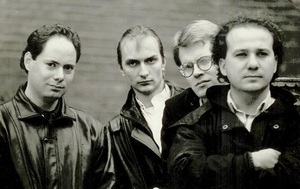 Anne and I left China for Taiwan in 1990 and lived there for three years. In Taiwan I found musicians with similar sensibilities, mostly expatriates, and formed a series of bands with names like the Gang of Formosa, the Lemming Dynasty, and Identity Crisis. In early 1991 friends in China invited Identity Crisis to perform in Beijing, where we befriended and played with many of China's pioneering rock musicians including Cui Jian. Identity Crisis played several concerts in Beijing and went on to perform further dates in the cities of Chengdu and Guangzhou. Later that year I returned to China with the Vagaries, a group of Seattle-based musicians whom I assembled especially for the tour. We performed for a television audience numbering literally in the hundreds of millions as part of the China International TV Festival, and gave 20 concerts in Chengdu, Chongqing, Guangzhou, and Kunming — where the provincial Minister of Culture drunkenly proclaimed that he had "seen the power of rock and roll!" The Vagaries included drummer Bill Rieflin, a member of the current edition of Land. An earlier edition of Land traveled to China in 1996 to perform in the Beijing International Jazz Festival and in Hong Kong, Macau, Kunming, and Chengdu. All three tours were among the most memorable experiences of my life, and opened my eyes to a completely different world of music. I've been deeply interested in traditional East Asian music ever since.
Anne and I left China for Taiwan in 1990 and lived there for three years. In Taiwan I found musicians with similar sensibilities, mostly expatriates, and formed a series of bands with names like the Gang of Formosa, the Lemming Dynasty, and Identity Crisis. In early 1991 friends in China invited Identity Crisis to perform in Beijing, where we befriended and played with many of China's pioneering rock musicians including Cui Jian. Identity Crisis played several concerts in Beijing and went on to perform further dates in the cities of Chengdu and Guangzhou. Later that year I returned to China with the Vagaries, a group of Seattle-based musicians whom I assembled especially for the tour. We performed for a television audience numbering literally in the hundreds of millions as part of the China International TV Festival, and gave 20 concerts in Chengdu, Chongqing, Guangzhou, and Kunming — where the provincial Minister of Culture drunkenly proclaimed that he had "seen the power of rock and roll!" The Vagaries included drummer Bill Rieflin, a member of the current edition of Land. An earlier edition of Land traveled to China in 1996 to perform in the Beijing International Jazz Festival and in Hong Kong, Macau, Kunming, and Chengdu. All three tours were among the most memorable experiences of my life, and opened my eyes to a completely different world of music. I've been deeply interested in traditional East Asian music ever since.
Please describe the circumstances regarding your solo album, Shadow in Dreams, released on the China Records label in 1990. How did you get the album released, and how important was it at the time to the music industry in the Far East?
:format(jpeg):mode_rgb()/discogs-images/R-1356125-1212383083.jpeg.jpg) One day a producer for the official state-owned record label, China Records, turned up at my door in Chengdu and said that he wanted me to make a record for the label. I was of course delighted at the prospect, but wanted to make sure he knew what he was getting, as the label generally produced the execrable easy-listening pap. He assured me that I could do what I wanted — as long as I agreed to include something familiar to Chinese listeners. When I inquired what he had in mind, he asked me if I was aware of Belgian schlockmeister Richard Clayderman, whose tinkly piano fluff was all the rage in China at the time. I groaned inwardly and told him that I was the wrong person for what he had in mind, but he persisted and we settled on my doing a version of Beethoven's "Für Elise" as a compromise. I generally don't do covers, and I loathe Beethoven, but I exacted a small measure of revenge by making it the weirdest track on the record thanks to a variety of strange guitar preparations. I managed to produce a deeply flawed record of overdubbed guitar instrumentals, with the occasional ill-considered drum machine track, in spite of faulty equipment and frequent power outages. To my everlasting astonishment the record, inexplicably titled Shadow in Dreams by the record company, sold 40,000 copies and was listed among the year's 10 best releases by China Youth Daily. I was paid $500. In the grand scheme of things, it was a minor blip on the Chinese musical landscape, but I suppose it was significant for being perhaps the first record of creative music made by a foreign musician in China. Years later, I ran into people who told me it was important to them, which blows my mind.
One day a producer for the official state-owned record label, China Records, turned up at my door in Chengdu and said that he wanted me to make a record for the label. I was of course delighted at the prospect, but wanted to make sure he knew what he was getting, as the label generally produced the execrable easy-listening pap. He assured me that I could do what I wanted — as long as I agreed to include something familiar to Chinese listeners. When I inquired what he had in mind, he asked me if I was aware of Belgian schlockmeister Richard Clayderman, whose tinkly piano fluff was all the rage in China at the time. I groaned inwardly and told him that I was the wrong person for what he had in mind, but he persisted and we settled on my doing a version of Beethoven's "Für Elise" as a compromise. I generally don't do covers, and I loathe Beethoven, but I exacted a small measure of revenge by making it the weirdest track on the record thanks to a variety of strange guitar preparations. I managed to produce a deeply flawed record of overdubbed guitar instrumentals, with the occasional ill-considered drum machine track, in spite of faulty equipment and frequent power outages. To my everlasting astonishment the record, inexplicably titled Shadow in Dreams by the record company, sold 40,000 copies and was listed among the year's 10 best releases by China Youth Daily. I was paid $500. In the grand scheme of things, it was a minor blip on the Chinese musical landscape, but I suppose it was significant for being perhaps the first record of creative music made by a foreign musician in China. Years later, I ran into people who told me it was important to them, which blows my mind.
How did you become interested in lap steel guitar? What sonic opportunities do you believe the instrument gives you?
I've long been interested in horizontal stringed instruments such as the Japanese koto, Korean kayagum, and Chinese qin because of their expressive possibilities, and also admire the 'tabletop guitar' approach explored by Fred Frith, Keith Rowe, and others. One day I was poking around in an antique shop when I spied a beat-up lap steel guitar with a garish day-glo pink Plexiglas fret board. The shop owner didn't even know if it worked, but at only $70, I figured it was worth a gamble. The instrument turned out to be too noisy for normal slide playing, but I hit upon the idea of mounting two e-bows on the strings near the bridge in order to vibrate the strings indefinitely. Once the strings are vibrating, I use needles, slides, and other objects in both hands to produce glissandos and excite harmonics, and then use various sound processors and delay devices to build real-time sound creations. This approach involves no traditional guitar technique whatsoever, but is more a matter of sculpting sustained tones. It's been a refreshing antidote to a steady diet of stand-up guitar playing.
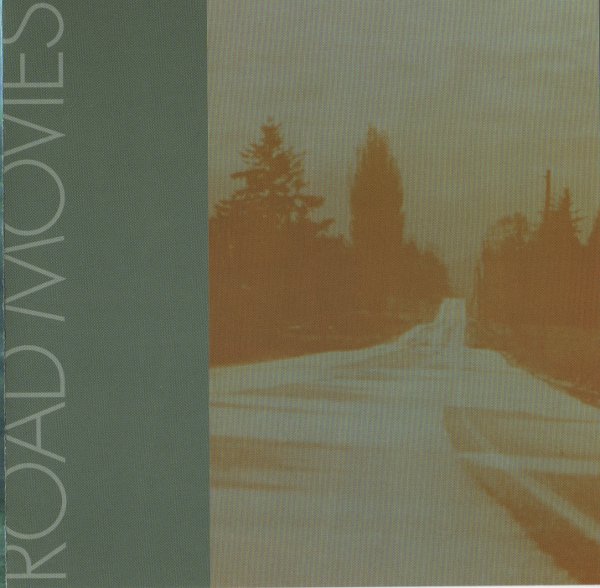 How did you get hooked up with Jeff Greinke and Land? How does a Land live gig vary from your studio works? (I'd imagine there's more room for improvisation?)
How did you get hooked up with Jeff Greinke and Land? How does a Land live gig vary from your studio works? (I'd imagine there's more room for improvisation?)
Jeff is my oldest friend in Seattle. We first met shortly after Jeff and his frequent musical partner Rob Angus moved to Seattle from Pennsylvania in the early 80s, through their interest in K. Leimer's Savant project, in which I was involved at the time. Our first gig together was also the first for either of us in Seattle. Jeff and I shared similar musical sensibilities, so he invited me to join his first group project, Land, after I returned to Seattle from Taiwan in 1993. At this point Jeff and I are the two remaining founding members of the group, as trumpeter Lesli Dalaba has left Land to focus on other pursuits.
Land has progressed through three distinct incarnations since its inception, and has moved from a more ethereal, world music-influenced approach to its present harder-edged sound. With regard to your second question, all three Land CDs were recorded as live radio broadcasts, with very little rerecording or cosmetic surgery after the fact, so they are accurate representations of the band's live sound. We've never gone in for artifice or overdubbing in our recordings, and generous sections of the music are always left open for improvising — our one tenuous connection with 'jazz.'
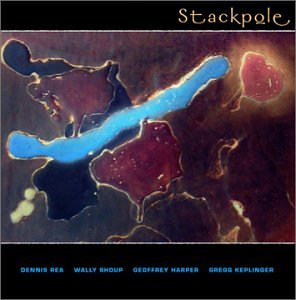 Can you please describe a few of the varying projects you're working on? Do you have any new releases coming out?
Can you please describe a few of the varying projects you're working on? Do you have any new releases coming out?
I currently have several projects besides Land and Stackpole, the most important being the avant power quartet Axolotl with guitarist Bill Horist, electric bassist Ryan Berg, and drummer Randy Doak. Axolotl is a twin-guitar juggernaut that combines devilishly intricate compositions with explosive improvising and features the contrasting yet complementary sounds and styles of Bill and myself. I can't praise Bill highly enough — you'll definitely be hearing about him if you haven't already. Axolotl is eager to get into the studio to record, now that we've finally found a drummer who is right for the group.
I also play regularly with a unique singer/songwriter named Eric Apoe, a master of numerous musical genres with a biting worldview. Other projects include the improvising trio Outland with Ed Petry and Stinkhorn's Michael Monhart; a live sound-collage project with sonic outlaws Pete Comley and Simon Poole; a new acoustic improvising group featuring guitar, upright bass, and violin, and the occasional solo show utilizing lap steel with electronics. Recent releases include a cameo appearance on guitarist Rik Wright's disc Bleeding Laughter and a trio improvisation on the Owasso Night Atlas compilation put together by the shadowy Infrasound Collective. Future releases include a new Eric Apoe CD and an appearance on an upcoming record by French producer Hector Zazou, on which I contributed a guitar track to a tune that features Lori Carson of the Golden Palominos.
When can we expect your new solo album?
The time seems ripe for my first solo CD (apart from Shadow in Dreams, which was only released in China), and I plan to start recording tracks this fall for release sometime in 2002. The record will be constructed primarily of guitar sounds — electric, acoustic, and lap steel — with a few appearances by guest musicians, and will be a blend of composed and improvised material.
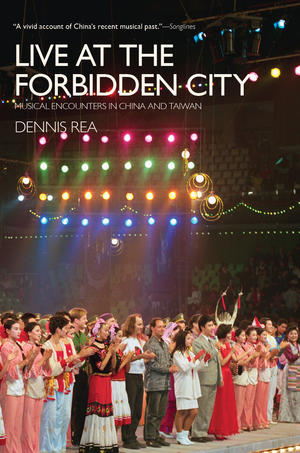
When did you decide to write a book and chronicle your musical activities?
I started work on my book-in-progress in 1992, when I was invited to write about my musical experiences in China and Taiwan for Chime: The Journal of the European Foundation for Chinese Music Research. To my surprise, the journal published the entire 30-page narrative of my musical adventures, which encouraged me to expand the account to book length. As my involvement in the contemporary Chinese music scene continues, the book continues to grow, so the greatest challenge at this point is to decide where to stop. I hope to complete the book by the end of the year and then submit it to various publishers for consideration. It's essentially a memoir, filled with ludicrous concert scenarios, an account of the civil unrest in Chengdu in 1989, and sidelong observations on Chinese music and culture. It captures the Chinese music scene at a pivotal point of transition: the emergence of rock music and jazz in a society that had been extremely closed and xenophobic until the 80s. Unfortunately, the Chinese music scene has already taken on some of the worst characteristics of the global consumer culture.
How did your electronic newsletter, The Tentacle come about?
The Tentacle was born out of frustration with the near-total lack of coverage of creative music in the Seattle mainstream and 'alternative' press alike. Eventually two Seattle musicians, Rob Bageant and Mike Marlin, started a free weekly e-mail calendar listing a handful of local experimental and improvised music events, which was initially sent to about 30 recipients. Demand grew rapidly, and today the weekly "T-mail" goes out to nearly 700 subscribers around the world. The next step was the creation of a comprehensive, regularly updated Tentacle Web site (www.tentacle.org) that documents adventurous music activity in the Northwest from Oregon to British Columbia. About four years ago The Tentacle launched a print magazine that is currently distributed to a dozen Northwest cities as a 32-page quarterly publication. In addition to event listings, news, release announcements, and concert and music book reviews, the magazine gives voice to the musicians themselves by providing a forum for discourse on the theoretical and philosophical aspects of creative music making. Recent feature articles have included a survey of Northwest instrument inventors, accounts of field recording in the Central American rain forest and at the WTO protests in Seattle, and a look at the rewards and disappointments of making one's own CD.
Perhaps most importantly, The Tentacle has created a network of northwest creative musicians where none existed before, functioning as a sort of switchboard for sharing information and facilitating collaboration between musicians. Many readers have hailed The Tentacle as a model example of a non-commercial, artist-produced regional informational resource. I recently stepped down from my editorial role at The Tentacle in order to focus more on my own music, but the Tentacle T-mail, Web site, and magazine continue under the able guidance of the remaining collective members.
Some photos courtesy of Dennis Rea from his website.
Filed under: Interviews, Issue 23
Related artist(s): K Leimer / Savant, Klaus Schulze, Hector Zazou, Bill Horist, Dennis Rea, Wally Shoup, Jeff Greinke, Stackpole, Bill Rieflin, Rik Wright, Land, Earthstar
More info
http://www.dennisrea.com
What's new
These are the most recent changes made to artists, releases, and articles.
- Release: Thierry Zaboitzeff - Artefacts
Updated 2026-02-27 00:16:46 - Review: Kevin Kastning - Codex I & Codex II
Published 2026-02-27 - Release: Zan Zone - The Rock Is Still Rollin'
Updated 2026-02-26 23:26:09 - Release: The Leemoo Gang - A Family Business
Updated 2026-02-26 23:07:29 - Release: Ciolkowska - Bomba Nastoyashchego
Updated 2026-02-26 13:08:55 - Review: Immensity Crumb - Chamber Music for Sleeping Giants
Published 2026-02-26 - Release: The Gatekeepers - Diary of a Teenage Prophet
Updated 2026-02-25 15:55:58 - Review: Mars Lasar - Grand Canyon
Published 2026-02-25 - Listen and discover: Mordecai Smyth will not break your back
Published 2026-02-25 - Release: Tashi Wada - What Is Not Strange?
Updated 2026-02-24 14:56:16 - Artist: Tashi Wada
Updated 2026-02-24 14:54:34 - Release: Greg Segal - Maintain!
Updated 2026-02-24 00:38:03 - Review: Il Segno del Comando - Sublimazione - Live
Published 2026-02-24 - Review: Nektar - Mission to Mars & Fortyfied
Published 2026-02-23 - Review: Jaime Rosas - Tres Piezas de Rock Progresivo
Published 2026-02-22 - Release: Kevin Kastning & Bruno Råberg - Across Tall Rain
Updated 2026-02-21 00:42:08 - Review: Gary Husband - Postcards from the Past
Published 2026-02-21 - Release: Daniel Crommie - Februa
Updated 2026-02-20 14:23:17
